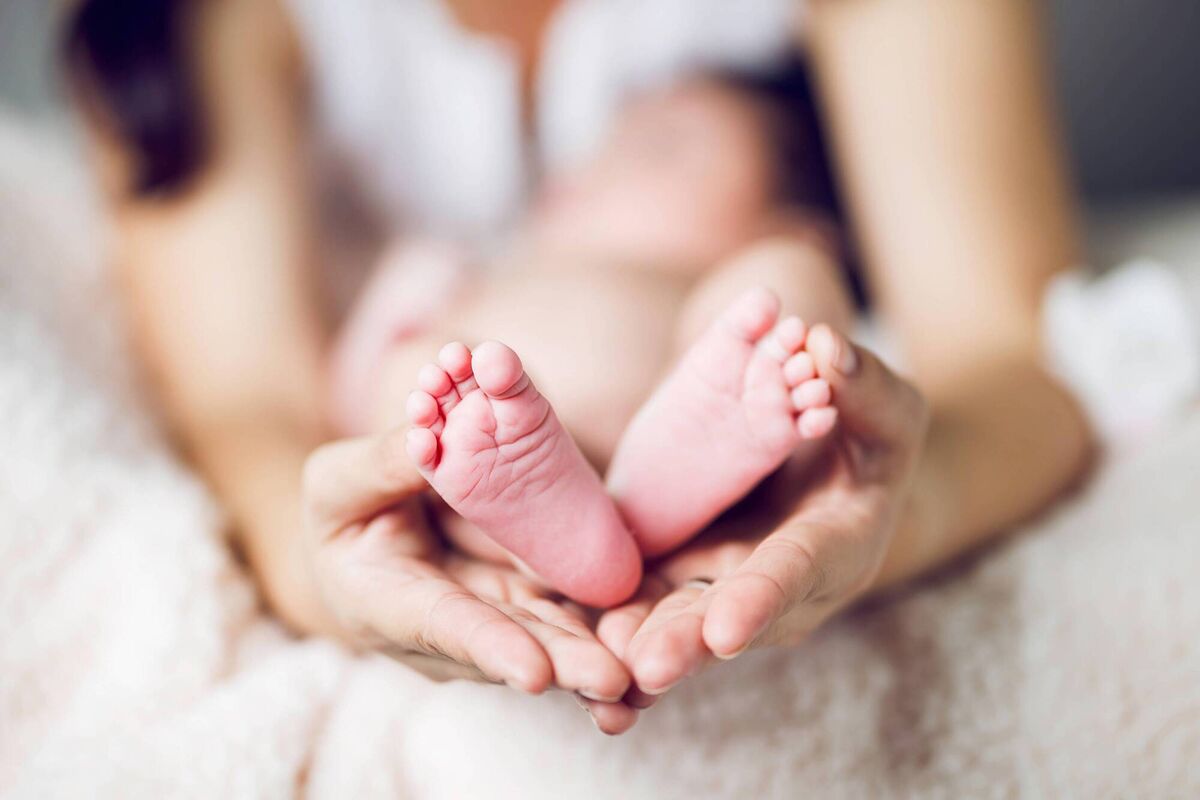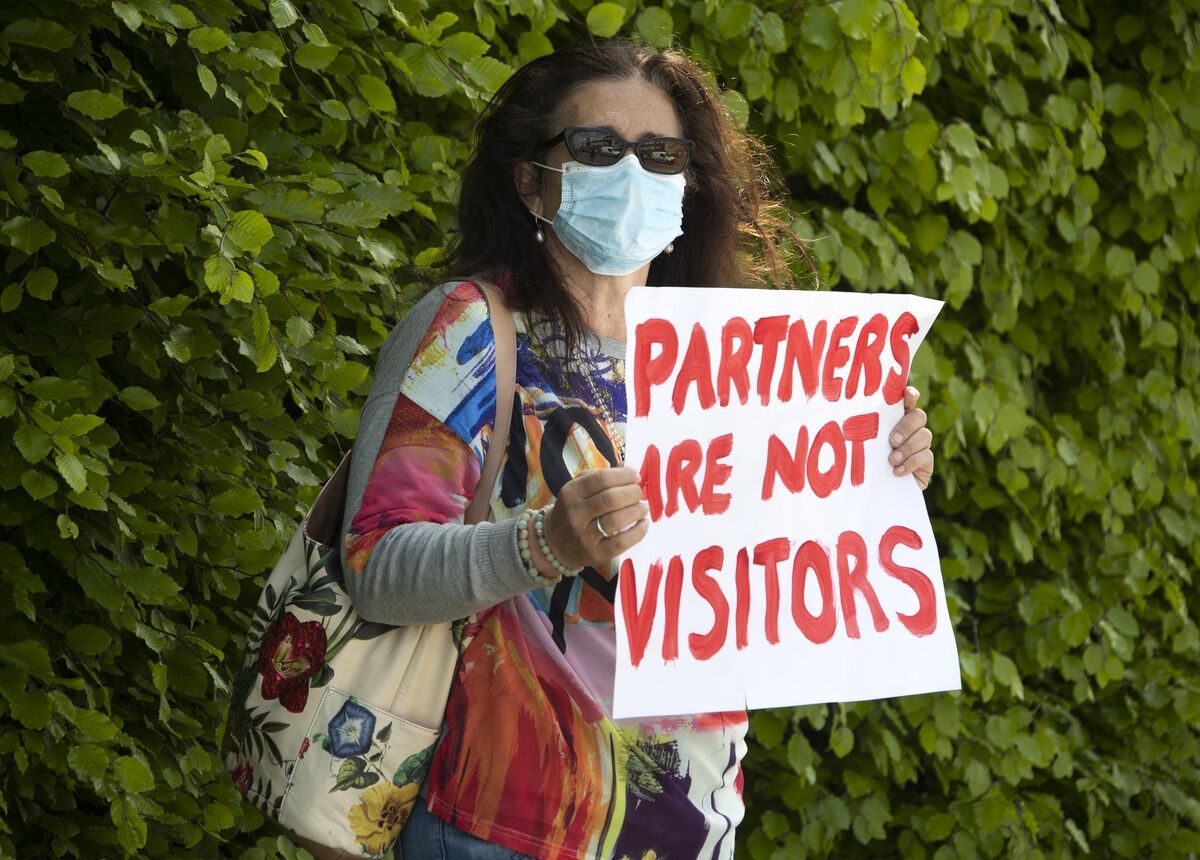Elaine Loughlin: Conscientious objectors already limit services at our maternity hospitals

Those entrenched in what has become a fraught debate on the National Maternity Hospital (NMH) should know that it doesn't take a group of nuns to prevent the delivery of women's healthcare.
In hospitals across the country, women are being denied access to services because of the conscientious objections of a few consultants or anesthesiologists, or perhaps a manager.
It has led some campaigners to refer to it as conscientious obstruction of termination of pregnancy services.
Likewise, it has been individual hospital managers who have made decisions on whether birth partners were given access to maternity hospitals during the pandemic and who forced pregnant people to be alone during labour and to attend emergency appointments or scans without support.
Women have been subjected to a postcode lottery of maternity services with different restrictions applied across the country.
While Covid measures have all but disappeared across wider society, restrictions remain in place in some maternity hospitals because managers have decided that this should be the case.
None of this can be blamed on any decree from Rome, it is down to people on the ground who are making decisions about the type and level of care.

"Maternity restrictions are still a huge issue," said Krysia Lynch, chair of the Association for Improvements in Maternity Services (AIMS).
"Most people seem to believe that they cannot possibly still be in place, but they are 100% still in place. They are not helpful and not in the best interest of people who are giving birth.
"A lot of them have absolutely no evidence behind them, there's no risk assessments behind them. It's almost as if the system got used to them, and it's just maintaining them.
"It shows us that we have units that are extremely ahead of their time, but we have other units that are extremely behind the time and there doesn't seem to be any way of changing that."
While those on both sides of the NMH debate are consumed by legal documents, convoluted ownership arrangements, and potential conflicts that may arise in five, 10 or 15 years, women right now are not receiving the care they should be entitled to.
"It's a patriarchal, misogynist system. It's almost like we are never trusted and we are always having to prove ourselves," Joanne Neary of Leitrim for Choice said.
"It's like we have come so far, but sometimes I question how far we really have come."
Under Government policy, termination of pregnancy services requiring hospital treatment should be provided in all 19 maternity hospitals and units to "ensure appropriate geographic coverage across all areas of the country", but eight hospitals still do not carry out these services.
Sligo recently indicated it is to provide services and it is hoped that the number of hospitals facilitating termination of pregnancy care will increase to 14 by the end of the year.
A recent study, partly funded by the WHO, found that establishment of abortion services since the repeal of the eighth amendment has relied on "individual champions" among staff, but their motivation is not always sufficient to integrate abortion into existing clinical services and conscientious objection is a "persistent barrier" to expanding abortion services.
“Most hospitals are providing. We still have a few because we have 19 maternity hospitals and legally, they're all supposed to be providing, but some of the smaller ones are not because the consultants and management are conscientious objectors," one midwife said.
Another midwife explained that objectors can place a burden on willing staff meaning they can be forced to work extra hours: “We're able to run the service, but [sometimes there is] a conscientious objector on shift who basically just blocks everything completely.
"So there was a night that I was on day shift, which is usually half seven till half eight and I had to stay in the hospital till 11 o'clock because the midwife that was coming on for night shift was a conscientious objector and refused to even go into the room."

In healthcare settings where a large number of staff object to providing services the workload has also become too onerous for those willing staff, which has forced them to also opt out.
One anesthesiologist explained: “They were signing the conscientious objection forms because so many of their colleagues were refusing to perform procedures on moral grounds that a lot of extra responsibility was being placed on them to come in earlier and to carry all that workload and they didn't feel that it was fair.”
While getting the terms and conditions of any new maternity hospital right is essential, difficulties in our healthcare system are negatively affecting women in hospital wards today and are stopping others from accessing services.
"Everything is a fight. There are people involved in so many different campaigns, women involved across this country in so many different campaigns just advocating for very basic health care, access to basic health care," said Ms Neary.
The Government agreed to provide financial assistance to thalidomide survivors. The reported that the Government had given "very earnest consideration to the plight of thalidomide children and had decided that as a matter of social justice it should help those innocent victims of a very great tragedy."
After 32 years of active engagement in politics, which included nine years as taoiseach, Jack Lynch announced he would not be contesting the next general election.
"A noted son of Blackpool in the vicinity of which he was born in 1917, Jack Lynch had reached the height of his fame on the GAA fields — he had won six All-Ireland medals, five in hurling and one in football — when he was first elected for Fianna Fáil in the general election of 1948," the reported.
Then taoiseach Bertie Ahern released a 13-page statement on the circumstances of the £30,000 payment made to him by businessman Michael Wall in 1994. Mr Ahern also admitted that he could face a tax bill for the dig-outs he received from friends in Dublin and Manchester in 1993.
A now infamous meeting of AIB shareholders was held in Dublin. The featured a number of quotes from those who attended, including egg-thrower Gary Keogh, who told chairman Dermot Gleeson: "The whole board should be replaced by Mickey Mouse and Donald Duck. We should go to Disneyland and Paris. At least we'd have a laugh."
The political week begins with Cabinet before the Taoiseach takes Leaders' Questions in the Dáil.
There will be Dáil statements to mark Europe Day.
In the evening, a Sinn Féin motion on housing will be debated in the Dáil, which seeks to dramatically increase direct capital investment in the delivery of genuinely affordable homes to buy.
Stephen Donnelly, the health minister, has arranged to meet Fine Gael senators and TDs along with representatives of the National Maternity Hospital in a bid to ease concerns and address outstanding questions around the governance and ownership of the proposed facility.
Meanwhile, the housing committee will examine the provision of housing for older people and the Fair Deal scheme.
It's a busy week for Mr Donnelly as he will come before the Oireachtas health committee in the morning to again answer questions on the National Maternity Hospital plans.
In the Dáil, a living wage bill brought forward by Labour leader Ivana Bacik will be debated.
The sports committee will discuss how abuse directed at referees can be stamped out.
Norma Foley, the education minister, will be in the Dáil to take questions from opposition politicians relating to her own department before the final Leaders' Questions of the week kicks off.
The proposed National Maternity Hospital will yet again come up for debate and discussion, this time in the Dáil chamber.
The Public Accounts Committee will discuss matters relating to the University of Limerick.
Voters in the North elect 90 Members of the Legislative Assembly (MLAs). There are five MLAs elected to each of the 18 constituencies across the North. The Assembly is chaired by a speaker and three deputy speakers. At least 10 members, including the speaker, must be present for a vote to be taken on any matter.






